 In the past three months, I've read thirty-seven books, books, thirty-one of them ranged from good fun to memorable read, four I opted not to finish and two I finished and wished I hadn't. Seventy per cent of the books came from my TBR pile but my lack of impulse control meant that I added three times as many books to it as I took off it.
In the past three months, I've read thirty-seven books, books, thirty-one of them ranged from good fun to memorable read, four I opted not to finish and two I finished and wished I hadn't. Seventy per cent of the books came from my TBR pile but my lack of impulse control meant that I added three times as many books to it as I took off it.
I took on two Reading Challenges this quarter. The first was "Prospecting my TBR Pile to find 24 enticing books written by women"

This was to get me to read twenty-four of the best books by women in my TBR pile by the end of this year.
I read three (rather than the planned eight) but all three of them were five-star reads (see Best Mainstream Fiction and Best Genre Fiction)
The second was the Summer of Spies challenge. This turned out to be a very varied experience. Three of the five books were four-star reads, one I didn't finish and one I wished I hadn't bothered finishing.

Mick Herron and John Le Carré both delivered excellent, richly textured, very British novels. In "Real Tigers" Mick Herron's third Slough House novel, the "slow horses" of MI6 who have been condemned to the pointless purgatory of Slough House, tangle with a British Minister and some security contractors. Le Carré comes at similar issues in "A Delicate Truth" but this time from the point of view of a senior Civil Servant in the FCO trying to find the truth behind his Minister's actions.
I highly recommend both books.
"Who Is Vera Kelly?" by Rosalie Knecht took me to Argentina in the 1960s with Vera Kelly, a young woman recently hired to the CIA and sent on a surveillance mission to pre-coup Buenos Aires. This original, engaging book used the spy genre and the attitudes of the 1960s to homosexuality to demonstrate what it’s like to live in an environment so hostile to your sexual orientation that you dare not admit to being who you are and the consequential stress, isolation and blurring of identity.
Sonja Stone's"Desert Dark", a YA spy novel set in an elite school training talented teens to be CIA Black Ops agents was a DNF for me. I was supposed to be engaged in finding out who the mole at the school was and instead found myself angry that any democracy would abuse children by sending them to a place like this. I was definitely not the target audience for this book.
My first reaction on completing listening to "The Traitor's Story" was "That's ten hours of my life I'm never getting back": Lacklustre story combined with unattractive characters and indifferent narration. Not recommended.
Best Mainstream Reads of the Quarter
My four favourite mainstream reads this quarter are all about strong women:
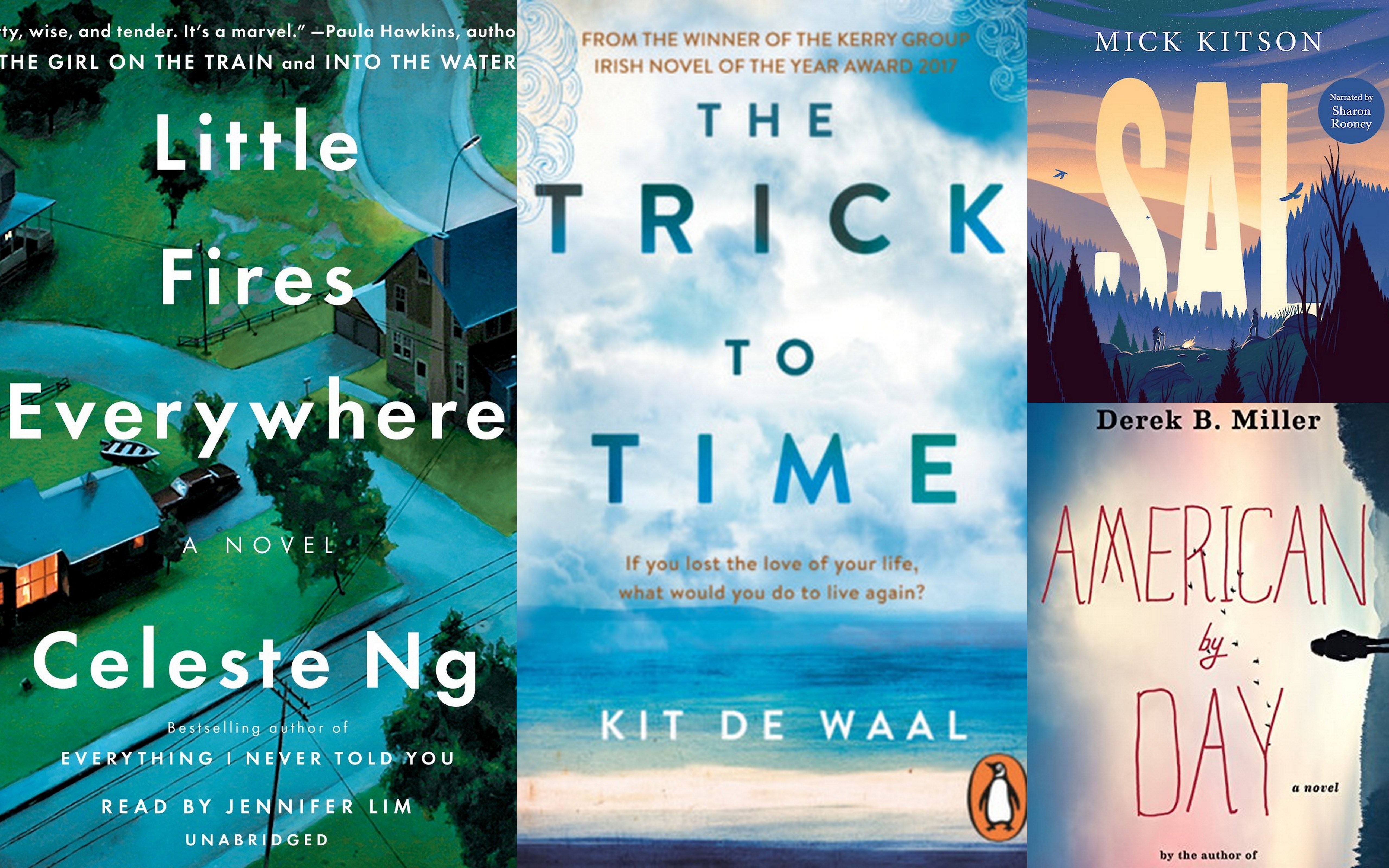
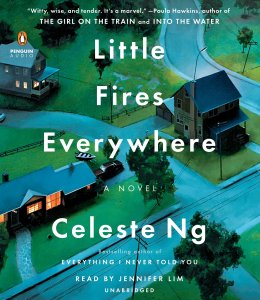 "Little Fires Everywhere"by Celeste Ng is a beautifully written as her "Everything I Never Told You", brings together two families, Mia and her daughter, who live a nomadic life, with Mia working on her art as a photographer while raising her daughter, and the Richardsons, mother, father and four children, raised in the idyllic, safe, solidly upper-middle-class Shaker Heights. Mia rents an apartment from Mrs Richardson. Their children, all in their teens, start to spend time together, Mia starts to work part-time cooking and cleaning for the Richardsons so that she can observe the family her, previously independent and possibly lonely, daughter has fallen under the spell of.
"Little Fires Everywhere"by Celeste Ng is a beautifully written as her "Everything I Never Told You", brings together two families, Mia and her daughter, who live a nomadic life, with Mia working on her art as a photographer while raising her daughter, and the Richardsons, mother, father and four children, raised in the idyllic, safe, solidly upper-middle-class Shaker Heights. Mia rents an apartment from Mrs Richardson. Their children, all in their teens, start to spend time together, Mia starts to work part-time cooking and cleaning for the Richardsons so that she can observe the family her, previously independent and possibly lonely, daughter has fallen under the spell of.
This “compare and contrast lifestyles” set-up is used to examine choices on motherhood, different types of mother-daughter relationships, the rights and wrongs of adoption (especially of a Chinese baby by a childless white couple) of abortion, and of surrogacy. It looks at whether families are born or made or both. It contrasts choosing to follow rules with choosing to follow your passion and asks if either choice makes sense.
It does all this without turning into an ethics essay. It stays focused on the people, the choices that have made them who they are and the potential that they have for changing and or for becoming even more deeply the people that they already are.
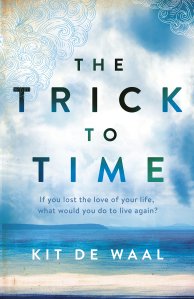 "The Trick To Time" by Kit De Waal is a is a deeply empathic book about the nature of grief, the enduring impact of loss and the effect of time on emotions, memory and our own sense of identity.
"The Trick To Time" by Kit De Waal is a is a deeply empathic book about the nature of grief, the enduring impact of loss and the effect of time on emotions, memory and our own sense of identity.
It tells the story of how the main character, Mona, came to be who she is. It is told in two parallel timelines: Mona as she reaches her sixtieth birthday, living alone in a seaside town in England, making dolls and providing some mysterious service to some of the women who visit her shop and Mona as a little girl, growing up in Ireland and then moving, in her late teens, to Birmingham to make a new life for herself.
The thing that most engaged me about the book was understanding how the little girl playing on the beach, and the young woman going nervously to her first dance in Birmingham, became the calm, strong but sad woman who makes wooden dolls in the present day.
The writing is beautiful without being flowery. From the beginning, I understood that there was more going on than I yet knew about and that understanding filled me with pleasant anticipation of a real story worth waiting for. It was a story that caught me by surprise time and again, up to the final chapter, but each surprise made more sense of Mona's life and actions rather than feeling like a magic trick.
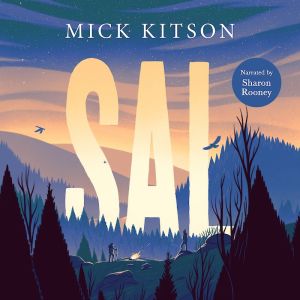 "Sal" is an original, engaging, story that deals with child abuse with empathy and compassion without turning the children into victims defined by their abuser. It made me think, cry, smile and get angry, sometimes within the course of a single page.
"Sal" is an original, engaging, story that deals with child abuse with empathy and compassion without turning the children into victims defined by their abuser. It made me think, cry, smile and get angry, sometimes within the course of a single page.
Sal is a thirteen-year-old girl who, after months of planning, has fled with her ten-year-old sister, Peppa, from their home in Glasgow to the forests of the Scottish Highlands, where, with a Bear Grylls knife, a compass, waterproofs, a first aid kit and what she's learned from the SAS Survival Handbook and watching YouTube videos, she intends to survive.
Sal has a unique voice, that Sharon Rooney brings to life with wonderful clarity in the audiobook version. This is a satisfying, thought-provoking but accessible novel. Sal is someone who will live in my memory for a long time.
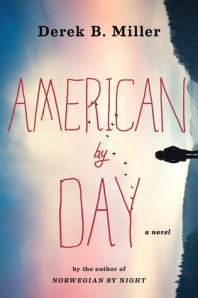 Set in 2008, the year of Obama's election, "American By Day" follows Chief Inspector Sigrid Ødegård, the Oslo police detective from Miller's wonderful "Norwegian By Night", to upstate New York in search of her missing brother. She arrives to find herself in the middle of an investigation into the death by fenestration of her brother's girlfriend in which her brother is the main suspect.
Set in 2008, the year of Obama's election, "American By Day" follows Chief Inspector Sigrid Ødegård, the Oslo police detective from Miller's wonderful "Norwegian By Night", to upstate New York in search of her missing brother. She arrives to find herself in the middle of an investigation into the death by fenestration of her brother's girlfriend in which her brother is the main suspect.
As Sigrid tries to use a mix of rational analysis and deep cunning to prevent her brother being killed by the police searching for him, we are lead through an exploration of American policing and the why so many encounters between the police and black men end up with the black men dead.
"American By Day" works as a standalone novel. It's funny, has an interesting mystery at its heart and deals with issues that are at the centre of American identity without being simplistic or pompous.
Best Genre Reads of the Quarter

This was a strong quarter for great Science Fiction.
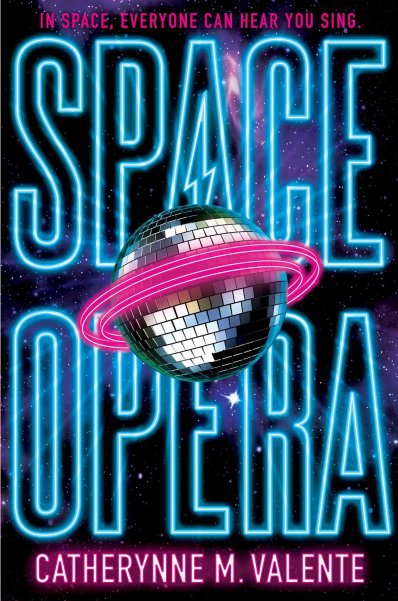 I started with"Space Opera" by Catherynne Valente which is a brilliantly conceived and executed take on what would happen if the fate of the Earth depended on how well we did in an intergalactic version of the Eurovision Song Contest.
I started with"Space Opera" by Catherynne Valente which is a brilliantly conceived and executed take on what would happen if the fate of the Earth depended on how well we did in an intergalactic version of the Eurovision Song Contest.
"Space Opera" was a mind-expanding, chortle-making, thought-provoking, memory-stirring, joy-producing experience from beginning to end.
It's packed with wit, pyrotechnic sentences, infinite imagination, seasoned with potential genocide and diabolically devious competition and held together by compassion and empathy and a little hope. It's kept human and relevant by focuses on some broken-but-not-yet-destroyed musicians and all the magic that music works for us.
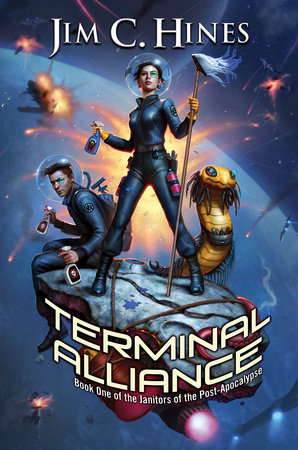 The quirky comedy continued with "Terminal Alliance" which takes place in a universe where most humans have been turned feral by a zombie plague from which 10,000 or so have been rescued by an alien race who now use them as a military force. The post-plague humans are hard to kill, aggressive and loyal. For the aliens, it's a great deal.
The quirky comedy continued with "Terminal Alliance" which takes place in a universe where most humans have been turned feral by a zombie plague from which 10,000 or so have been rescued by an alien race who now use them as a military force. The post-plague humans are hard to kill, aggressive and loyal. For the aliens, it's a great deal.
The janitors of the title humans who keep the warship clean and plumbing functioning, albeit that their leader, nicknamed mops, is occasionally consulted by the humans in battle command because she has good strategic insights and keeps a cool head.
When the warship gets caught in a trap that kills the alien officers and turns most of the humans feral again, it's left to Mops and her crew to find out what happened and save the universe, or at least humanity.
The pace is fast. The humour is irresistible. Yet this is not a shallow book. The universe-building is robust and complex. The characters, including the alien characters, are believable and engaging. The plot stands up against more mainstream SF and contains a big, skillfully revealed, secret. Best of all, Mops turns out to be a giant amongst humans: a natural leader, a shrewd tactician, an insatiable reader (Jane Austin's and Mary Shelley's works have survived the Holocaust), quietly brave and always witty.
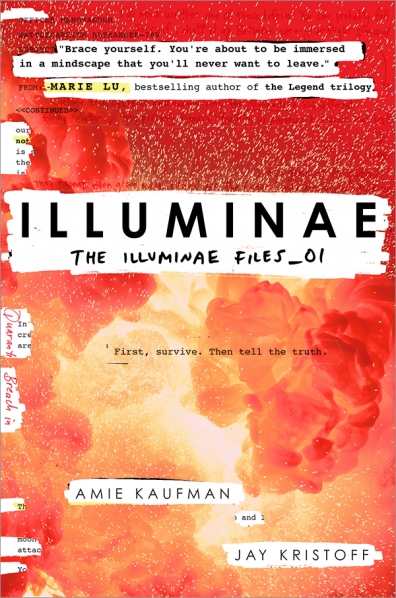 The quality continued to rise as I listened to the audiobook all-cast performance of "Illuminae" an engaging, exciting, and fundamentally original Science Fiction Must-Listen-To audiobook, which changes the novel into an engrossing radio play.
The quality continued to rise as I listened to the audiobook all-cast performance of "Illuminae" an engaging, exciting, and fundamentally original Science Fiction Must-Listen-To audiobook, which changes the novel into an engrossing radio play.
"Illuminae" is the story of an attack by a rival corporation on a rival's illegal mining colony the is interrupted by a navy warship and the aftermath, when thousands of survivors, crammed onto two civilian ships and the, now crippled, navy warship, make a month's long run for safety, pursued a Corporate Dreadnaught that is determined to eliminate all witnesses to the attack.
The story is presented as a series of reports, recording conversations and analysis security video footage with no prose binding them together. This may sound tedious but it's done with such skill and with such a clever structure that I believe the authors have produced a novel form that is fundamentally disruptive. It's like the leap from "Tristram Shandy" to "Pride and Prejudice" in terms of form. This is the bloom of an almost post-literate generation that has freed itself from linear text and the straight-jacket of grammar that keeps writing on the ground and has taken to swinging through the trees with the confidence of those who've grown up comfortable with Kanji/Emoli/Gif ideography.
The action is graphic and sometimes deeply disturbing. The emotional impact is high but not immature. The portrayal of the damaged-but-trying AI is first-rate. There are strong edge-of-your-seat thriller aspects to this book. It kept me caring and guessing right to the end.
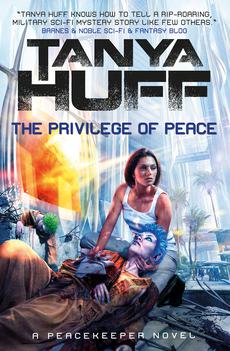 This quarter also so the publication of what Tanya Huff says will be the last Torin Kerr book, "The Privilege of Peace". I've followed Torin Kerr through the five Confederation novels, which I think are some of the best and most innovative military SF novels ever written and then on to the three Peacekeeper novels, which show how Torin, having helped end a galactic war hundreds of years long, handles the peace.
This quarter also so the publication of what Tanya Huff says will be the last Torin Kerr book, "The Privilege of Peace". I've followed Torin Kerr through the five Confederation novels, which I think are some of the best and most innovative military SF novels ever written and then on to the three Peacekeeper novels, which show how Torin, having helped end a galactic war hundreds of years long, handles the peace.
"The Privilege of Peace" was the perfect goodbye to the series. It moved the story arc on, engaging most of my favourite characters but didn't make the mistake of tidying everything up. As I left the book, I could see that Torin had grown and, in the process, had helped me understand how much more difficult the maintenance of peace can be than the fighting of a war.
Best New Find of the Quarter
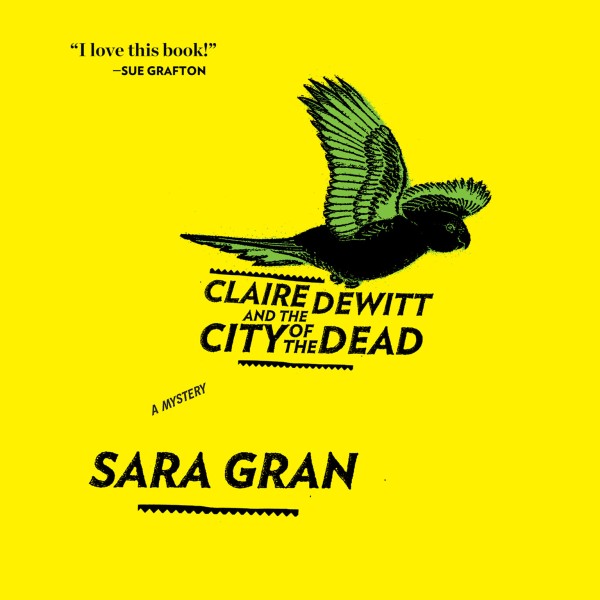
“Claire Dewitt and the City of the Dead” is an extraordinary book: fascinating, rewarding, often upsetting but really hard to describe. It invites the reader to look beyond the narrative and ask themselves questions about mysteries: our ability to see them, our willingness to solve them and how we continue on day by day while the truth of our own lives constantly slips through our fingers.
I entered it expecting a whodunnit mystery with some local New Orleans colour and a clever plot. Two hours into it, I had no idea what it was about. I knew what was happening but I’d started to understand that that was the answer to a different question.
This was Noire but not as I know it. I was reading something that seemed to be the lovechild of Raymond Chandler and Jean-Paul Satre.
Claire Dewitt, a PI who makes Philip Marlowe seem like a romantic softy with a tendency to take things too literally, solves cases, sorry, mysteries, by using a kind of muscular mysticism that is stretched tight over a skeleton of existential panic with grief as its marrow.
If you want to meet an extraordinary detective, have your worldview challenged and be taken on a tour of the chaos that is post-Katrina New Orleans, this is the book for you.
Best New Series of the Quarter
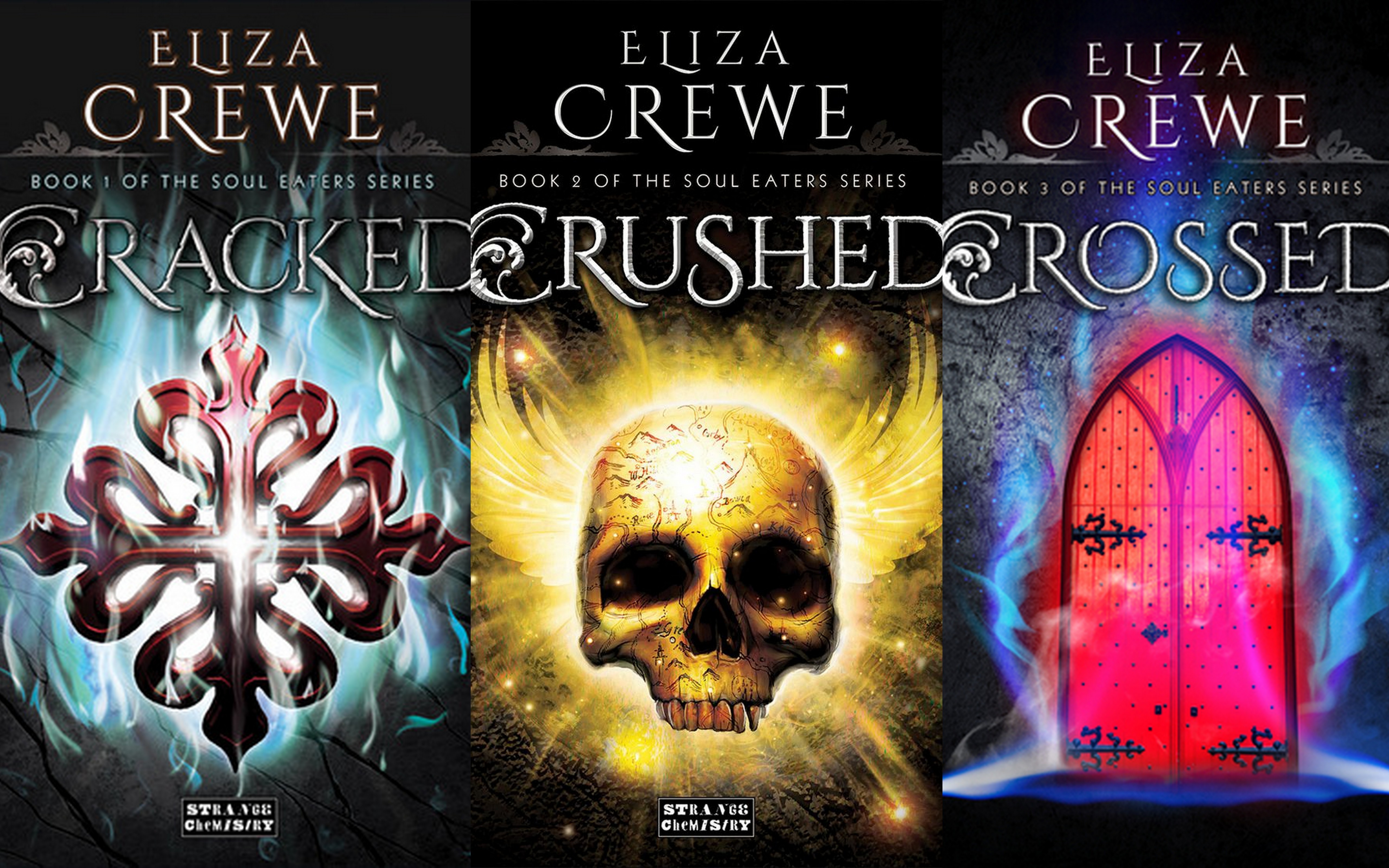
This Quarter, I read "Cracked", the first book in Eliza Crewe's Young Adult Soul Eater series. It was so good that I immediately bought and read "Crushed" and "Crossed", the other two books in the trilogy.
This is the story of a half-demon who finds herself caught in the middle of a war between the two sides of her heritage "Demon" and "Crusader". She's not really at home on any side other than her own. Well, except that there are a couple or Crusaders she cares about and a cute, charming and completely untrustworthy half-demon she spends a lot of time with but knows it's a temporary thing. Probably.
I liked the fact that the series eschews the normal dark vs light in an eternal struggle for balance thing and instead focuses on the choices that we take that make us who we are.
There's lots of action, some fairly witty dialogue, new twists on the supernatural world and a story arc that works across the trilogy and delivers constant surprises.
Biggest Disappointment of the Quarter
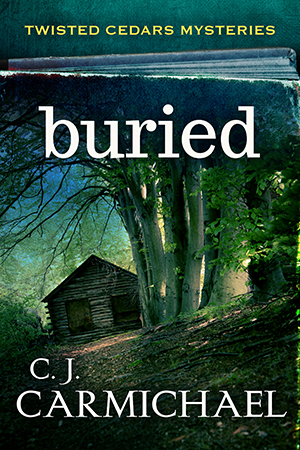 I got three-quarters of the way through "Buried" before abandoning it.
I got three-quarters of the way through "Buried" before abandoning it.
Why put it aside so close to the end? It had become obvious that this wasn’t really a complete novel. I was sliding towards a cliff-hanger ending and would have had to wade my way through another book, perhaps two, to get any real resolution. I hate that.
Why did I let myself get so far into the book? Well, the premise of a librarian-slaughtering, cold-case serial killer being investigated by a famous true crime author who has to return to his left-as-soon-as-I-could-and-never-went-back hometown seemed intriguing.
How can you go wrong with that? C. J. Carmichael managed it by writing all the characters at arms-length so that I felt I was reading a profile rather than meeting a person. Throw in the fact that the crime writer turns out to be a weak, undisciplined man who has never grown up and who does not meet even the few commitments he makes and I was losing interest in him solving any murders.
Even the writer's must-be-the-baddy soon-to-be-brother-in-law, my last hope of a good sub-plot came straight from the how-to-define-a-narcissist handbook and had no personality as an individual.
I felt like I was one step away from watching “The Bold and the Beautiful”

 10
10









